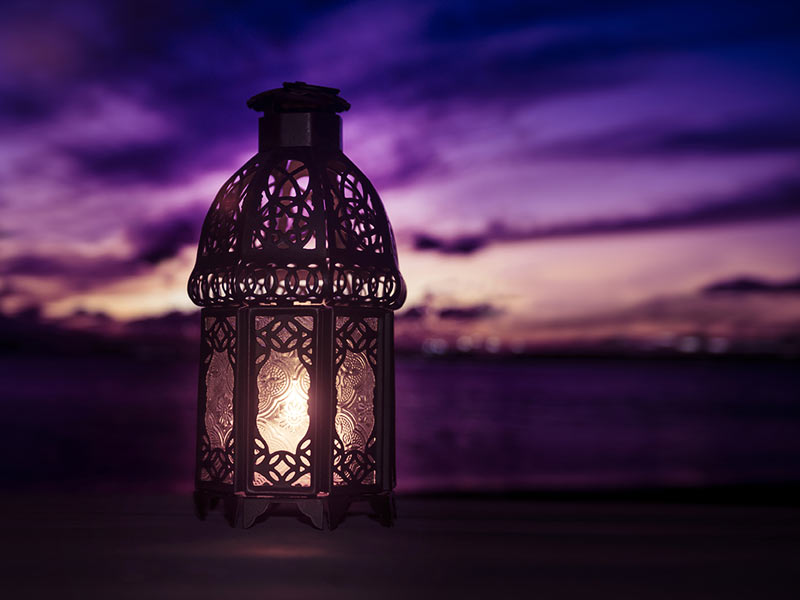
Ramadan Mubarak to our readers!
While the daylight hours are still long, at least we’ve made it through the recent years of Ramadan summers, which won’t return until 2042.
During recent Ramadan summers, I spent all or parts of Ramadan in the home country. But it’s getting tougher because of kids’ classes and adult work commitments. Being stuck in the US for Ramadan means the holiday month is dampened because my local mosque remains under Islamist management. It’s a depressing reality, where I either have to stay home or submit to the Islamist agenda.
Growing up, the best part of Ramadan was the extended Taraweeh prayers at night in the mosques after breaking the fast. I find it to be a nightly spiritual reboot, when focus on the verses of scripture recited during prayer and make it through the entire holy text over the course of the month. The month-long spiritual journey allows me to disconnect from mundane matters. Or, as I quipped to my daughter: “It makes me to be a better person in this life – and score points for the afterlife.”
Here in America, this spiritual elevation is debased in mosques controlled by Islamist groups. In addition to the heavy dose of heavy-handed politics creeping into the sermons throughout the year, there is the all-consuming petty internal politics that has nothing to do with religion or morality. To illustrate this painful state of affairs, let me tell you about my friend Haidar.
Haidar, an academic and relatively recent arrival in America, called to catch up last week. As we were talking, he reminded me of my warning to him when he first came to the US and thanked me for it. I didn’t remember what he was talking about.
“Remember when I first took my teaching position here at the university, you told me to steer clear of the MSA’s, and also to be aware of the fact that mosques are controlled by Islamists.”
“Oh yeah, but what gives? Why mention this now?”
“You have no idea. I’m trying to set up my own Jamaa so that I can have Taraweeh prayer away from the mosque”
Haidar went on to explain that his local mosque is a total sh*** show. (I don’t feel comfortable revealing its exact location, but it’s in a relatively major city out west.)
Shortly after Haidar began attending the mosque, the Imam gave a sermon vehemently attacking Saudi Arabia. The South Asian congregants jumped on this khutbah and tried to fire the Imam. It wasn’t because they like Saudi Arabia, but because they suspected the Imam was a secret Shi’a. The Imam (a convert) had studied in Yemen which made them suspicious of him all along. (Yemen has a sizable Zaidi community which is considered to be Shia although that is not entirely an accurate description; anyway the convert imam was certainly not Shi’a.)
A fight soon broke out between the South Asians and the Arabs. The Arabs insisted on controlling the mosque and keeping the Imam, despite the fact that the South Asians were the ones funding most of the mosque’s expenses. The South Asians ended up leaving to open their own mosque. The Arabs then took advantage of the South Asians leaving to actually fire the convert Imam: The whole plot had been hatched by an Egyptian Salafi who wanted to be Imam himself all along.
Though none of this was pleasant or Islamic, Haidar still went to the mosque with the mindset that he could go to do his own thing and avoid the silly internal squabbles. But the straw that split the camel’s back (as we say in Arabic) came when the new Egyptian Imam caused a huge scandal that threatened to bring down the entire congregation with a… you guessed it… love triangle.

At the center of the love triangle was a white convert lady who used to come for religious lessons. The Egyptian Salafi Imam had wanted to corner her for himself, but before he could make his move a Syrian congregant sealed the deal first. Outraged at being scooped, the Imam left the convert lady angry voice mails and text messages, harassing the poor woman. Her Syrian fiancé went to mosque on a Friday, stood up right after the prayer with his fiancé’s phone in his hand, and confronted the Imam in front of the entire congregation.
At first the imam tried to deny the whole thing. But as congregants began reading some of the text messages the tide began to turn. Another congregant stepped forward and said the same thing happened to his wife — another convert the Imam had pursued. The couple had kept quiet about it for fear of a scandal.
Cornered, the Imam called the accuser and those who took his side apostates (“kuffar!”). This almost led to a fist fight, and the police were called to help evacuate the mosque before a total melee broke out.
Haidar left before the cops showed up, and he swore an oath that night to never ever set foot again in that mosque so long as it is controlled by the board that hired and still backs the Egyptian Imam. Haidar used to donate money to the mosque, but after the scandal he told his friends it was actually a sin to give money as the place was neither holy nor Islamic. Apparently, he got a few a people to abstain from going or donating, and word of that got back to the Imam and the mosque’s board.
As we say in Arabic: شر البلية ما يضحك “The worst affliction can actually make you laugh.” Sure enough, I burst out laughing when Haidar described the silly fight over the convert women: it sounds like a slapstick comedy film from back home. But then I felt pangs of anger and disgust at yet another reminder of how corrupt and rotten so many American congregations have become because of the Islamists.
Until that problem gets fixed, Haidar and I will both be celebrating Ramadan without a mosque.
